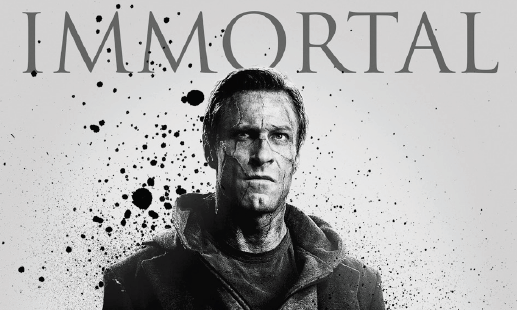“The Book Thief,” based on Markus Zusak’s novel of the same name, follows Liesel Meminger as she tries to create a normal life in a horrifically abnormal situation. It is the onset of World War II and the little girl arrives at her foster family’s house with nothing but a book she found at her brother’s funeral. Liesel’s foster father, Hans, begins teaching her how to read, and they quickly cover the basement walls with new words learned from each book. This new found ability to read changes her life and the life of every person in it. The movie reveals the human spirit at its greatest heights and its most abysmal lows.
While Liesel is nicknamed a book thief by her friend Rudy, she prefers to refer to herself as a book borrower. Liesel sneaks books out of the mayor’s house to read to a Jewish fugitive named Max as he struggles to survive a severe illness. The books often foreshadow events that are about to unfold and they provide a medium in which the characters develop relationships. Through books, Max becomes Liesel’s surrogate brother; Hans becomes Liesel’s teacher; Rudy becomes Liesel’s friend; and Liesel grows into a young woman and writer herself.
Life is anything but paradise for the residents of Himmel Street, which ironically means heaven in German. The Hubermann family is nervous and on edge from hiding a young Jewish man from the Nazis in their basement. Hiding Max is a high-risk endeavor, but he teaches Liesel the art of writing. She learns to really open her eyes and write about what she sees. Thus, a group of strangers become a family in one of history’s darkest times.
“The Book Thief” is not a depressing World War II movie that disheartens its audience for two hours. The horror of the war is broken up by the wit and charisma of the characters. In one touching scene, the Hubermann’s celebrate Christmas in the basement of their house. Their Christmas is no more than a simple tune on Hans’s accordion and a snowball fight around a pathetic snowman in their frigid basement. When Max remarks that this is his first Christmas, Hans replies, “Now you know what you have been missing out on!”The family’s ability to find humor in a dreadful situation helps them persevere through the long war.
The movie is historically accurate and provides an interesting backdrop for history buffs. Liesel attends a 1933 Nazi book burning. Books deemed “un-German” or full of “intellectual dirt” are destroyed in a large bonfire in an act of purification. It gives the viewer insight into Germany’s attitude regarding Communists, Jews, and anyone else who might interfere with Hitler’s radical agenda. The movie also mentions 1932 Olympic runner Jesse Owens. Liesel’s friend Rudy admires Owens but is violently criticized for it because Owens is African-American.
The movie accurately portrays the disintegration of Germany under Hitler’s leadership. The film also demonstrates how many German citizens were also victims of Hitler’s radicalism, living in poverty and constant fear.
For the Hubermann’s, even the slightest respite found in their meager Christmas comes with a price. Max’s illness worsens due to the melted snowman soaking his basement hiding place. Liesel bitterly regrets building the snowman inside and asks Hans why they had done such a silly thing. Hans replies, “Because we had to.” Liesel learns that life does not promise anything, but life does provide opportunities for us to try and make it what we want it to be.
There are many tense moments in the movie when Liesel and her neighbors huddle together in their town’s bomb shelter as bombs burst above them. These frightening scenes are always eased by the charisma of the actors and the resilience of the human spirit in the characters they portray. They pull through these terrifying times by listening to a tune from Hans’s accordion or a story from Liesel.
The personification of death narrates the movie. It was meant to be profound, but it creates a distraction and interrupts the flow of the movie. It is a device that may have been more effective in the book from which the film is drawn. Here the narration seems forced and contrived. However, it does provide closure for the characters by describing how each character’s soul passes on into death. Liesel’s writing is said to have touched many souls. Death says, “In the end there were no words, only peace”. Certainly Liesel and her family deserved no less.




